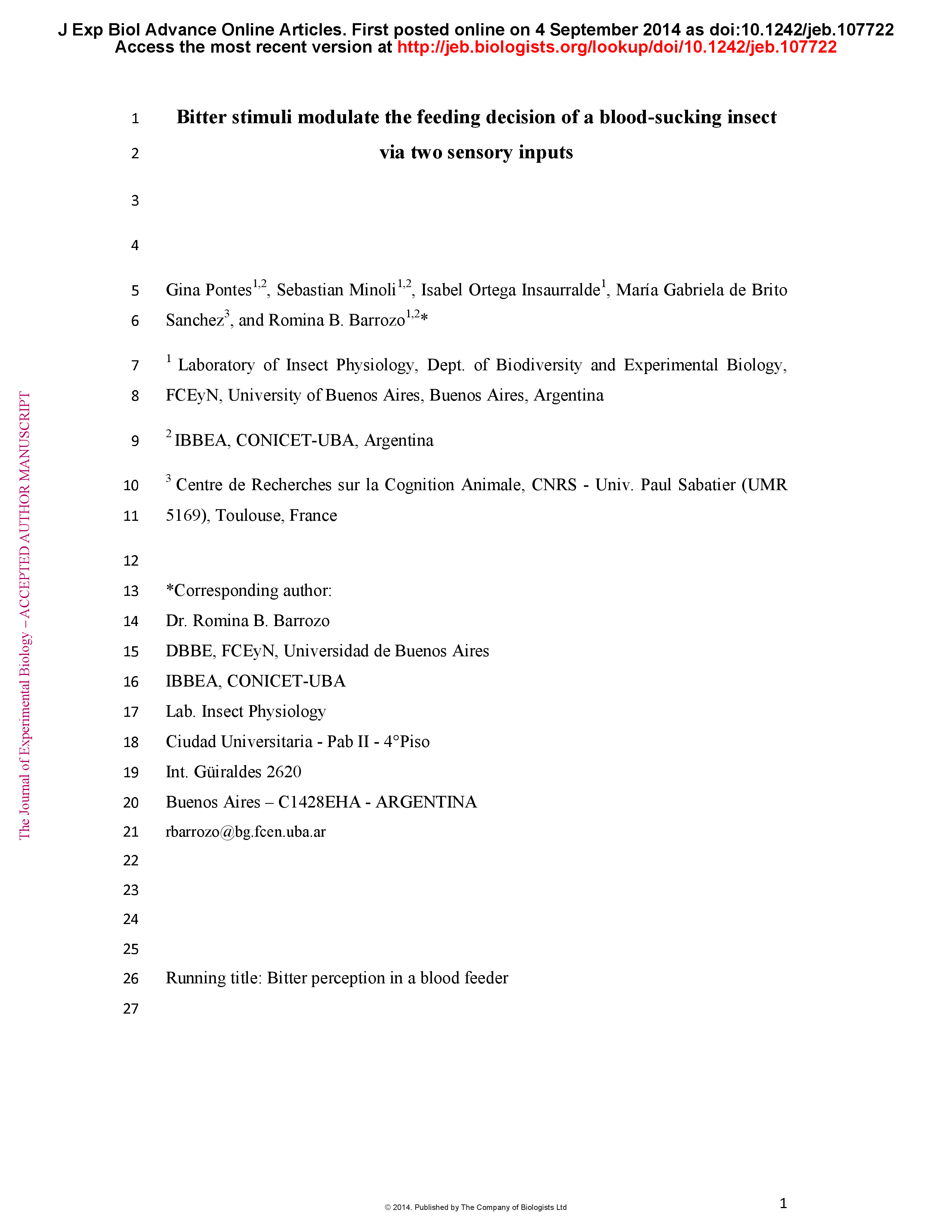Abstract
The gustatory system of animals is involved in the food quality assessment and controls the feeding decision of an individual confronted to a potential alimentary source. Triatomines are haematophagous insects that feed on vertebrate's blood. Once they reach a potential host, they walk over their skin searching for an adequate site to pierce. Then, they insert their stylets and take a first sampling gorge to decide if food is acceptable or not. Our work reveals that the presence of bitter compounds inhibits the feeding behavior of these bugs. Firstly, triatomines decreased their feeding behavior if substrates spread with quinine or caffeine were detected by external receptors localized exclusively in the antennae. Morphological inspections along with electrophysiological recordings revealed the existence of four gustatory sensilla located in the tip of the antenna that respond to both bitter tastants. The absence of these bitter detectors by antennal ablation reversed the observed feeding inhibition evoked by bitter compounds. Secondly, once triatomines pumped the first volume of food with bitter compounds (quinine, caffeine, berberine, salicin), a decrease in their feeding behavior was observed. Morphological inspections revealed the existence of 8 gustatory sensilla located in the pharynx that might be responsible for the internal bitter detection. Finally, we found that a brief pre-exposure to bitter compounds negatively modulates the motivation of bugs to feed on an appetitive solution. Results presented here highlight the relevance of bitter taste perception in the modulation of the feeding behavior of a blood-sucking insect.








